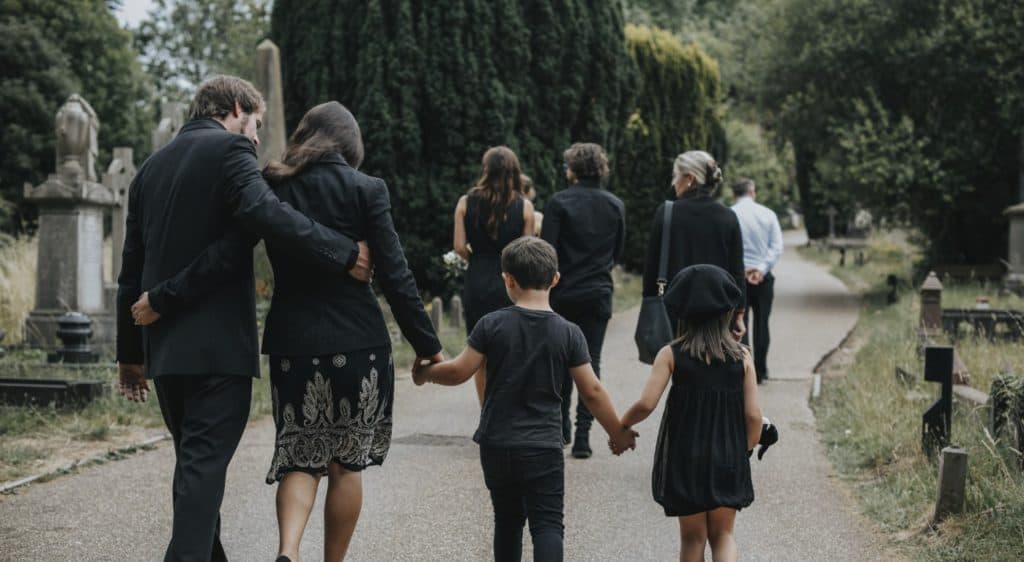A condolence message is a written expression of sympathy to someone who has lost a loved one. It is a way of offering your support and letting the bereaved know you are thinking of them during this difficult time.
Condolence messages can be sent in various ways, including letters, cards, emails, or social media posts. They can be formal or informal, depending on the relationship between the sender and the bereaved.
The most important thing is that the message is sincere. The bereaved can tell if you are being genuine, so it is important to be genuine in your words and feelings.
The Importance of Condolence Messages
The death of a loved one is a difficult and painful experience. It can be hard to know what to say or do to offer comfort to the bereaved. However, a condolence message can be a simple and meaningful way to show your support.
A condolence message is a written expression of sympathy to someone who has lost a loved one. It can be a letter, a card, or an email. The message should be sincere and express your condolences for the loss.
There are many reasons why it is important to write a condolence message. First, it is a way of showing your respect for the deceased and their loved ones. Second, it can offer comfort and support to the bereaved. Third, it can help to strengthen your relationship with the bereaved.
When writing a condolence message, there are a few things to remember. First, be sincere. The bereaved can tell if you are being genuine, so it is important to be genuine in your words and feelings.
Second, be specific. If you knew the deceased, share specific memories of them. This will help the bereaved to remember the good times they had with their loved ones.
Third, be respectful of the bereaved’s grief. Everyone grieves in their own way, so respect the bereaved’s grief. Do not try to tell them how they should feel or grieve.
Finally, keep it short and simple. There is no need to write a long, elaborate condolence message. A short, heartfelt message is often the most meaningful.
Timing Is Important
There is no right or wrong time to write a condolence message. However, it is generally considered best to write as soon as possible after the death. This is because the bereaved may feel overwhelmed and alone, and a timely message can let them know you are there for them.
You may still want to write a condolence message if you did not know the deceased well. This shows that you care about the bereaved and that you are there for them. You can also offer to help with practical tasks, such as cooking meals or running errands.
Who Needs Your Condolence Message
It is important to remember that the bereaved may not be ready to talk about the death. If they do not want to talk, that is okay. Let them know that you are there for them and that you care.
- The immediate family of the deceased. This includes the deceased’s spouse, children, parents, and siblings. These are the people who are closest to the deceased and who are likely to be feeling the most grief.
- Close friends of the deceased. These are people who knew the deceased well and were important to them. They may also be feeling grief and could use your support.
- Coworkers of the deceased. If the deceased was a coworker, you may want to write a condolence message to their colleagues. This is a way to show your support for the team and let them know you are thinking of them.
- Anyone else who was close to the deceased. If you know of anyone else who was close to the deceased, you may want to write them a condolence message as well. This is a way to show your support for the person and let them know you are thinking of them.
It is important to remember that there is no obligation to write a condolence message. However, if you feel moved to do so, it can be a thoughtful gesture that the bereaved will appreciate.
Guidance on Starting a Condolendelnce Message
Writing a comforting message can be a daunting task. However, considering a few our suggestions can help you get started.
First, begin by addressing the recipient warmly and personally. Use their first name to create a more intimate connection if they are close to you. This initial greeting is essential because it sets the tone for the rest of your message. It’s okay to keep it simple with phrases like “Dear [Name]” or “My dearest [Name].” It might seem trivial, but this personal touch can help create a supportive atmosphere immediately.
Next, express your condolences sincerely. It’s essential to convey your sympathy straightforwardly and from the heart. Avoid complex or grand language – remember, this is about expressing genuine empathy and compassion. A simple sentence like “I was deeply saddened to hear about [deceased’s name] ‘s passing” can effectively communicate your feelings.
Finally, acknowledging the pain and sorrow the bereaved person must feel is crucial to beginning a condolence message. Empathizing with the recipient can make them feel understood and less alone in their grief. Statements like “I can only imagine how difficult this must be for you” or “My heart aches for you during this challenging time” can exhibit your understanding of their emotional state.
These steps can help form a compassionate, heartfelt start to your condolence message, offering comfort and understanding to those navigating the challenges of grief.
Share A Personal Experience
When you share a personal experience, you are not only offering your condolences but also giving the bereaved a way to remember the deceased. You are reminding them of the good times they had together and helping them connect with their grief.
Of course, it is important to respect the bereaved’s grief. Everyone grieves in their own way, so there is no right or wrong way. Be patient and understanding with the bereaved, and allow them to grieve in their own time.
Appropriate shared experiences to share in a condolence note:
- Memorable experiences: These are experiences that were particularly special or memorable to you and the deceased. They could be funny, heartwarming, or simply ordinary moments that you shared.
- Lessons learned: The deceased may have taught you something valuable about life, love, or friendship. Sharing these lessons can help the bereaved to remember the deceased’s wisdom and impact on their life.
- Admiration: If you admire something about the deceased, such as their kindness, generosity, or strength, sharing this admiration can help the bereaved to remember the deceased’s positive qualities.
Example of a condolence note that includes a personal experience:
Dear (bereaved’s name),
I remember when (deceased’s name) and I (shared experience). It was such a (positive/memorable) experience, and I will always cherish the memory of it.
I was so sorry to hear about the loss of your (relationship to deceased). I know how much they meant to you, and I can only imagine how hard this must be for you.
I know that no words can improve this, but I want you to know I am here for you. If you need anything at all, please do not hesitate to ask.
I am thinking of you during this difficult time.
With love, (Your name)
Offer Your Support
Extending a helping hand through a condolence note can significantly comfort someone navigating grief. Here’s how you can incorporate specific offers of assistance in your message:
- Practical Support: Offer help that eases practical day-to-day burdens. You could write, “I can pick up groceries for you for the next few weeks,” or “If you need someone to walk your dog in the morning or the evening, I’m here.”
- Emotional Support: Let them know you’re available for a heart-to-heart conversation. You might say, “I’m just a phone call away if you need someone to talk to or just sit with in silence.”
- Household Assistance: If you’re close to the person, offering help with household chores can be very beneficial. This could be something like, “I’d be more than willing to come over and help with cleaning or laundry over the next few weeks.”
- Meal Support: Cooking can be daunting for someone dealing with grief. You could offer, “I would love to drop off some home-cooked meals for you or set up a meal delivery service for the coming weeks.”
- Child or Elder Care: If the bereaved has responsibilities towards children or older adults, offer your help. You can say, “I’m here to babysit whenever you need a break,” or “I can spend time with Grandma on the weekends, taking her for her regular park visits.”
- Professional Help: If you have expertise in certain areas, offer those services. For instance, “As a lawyer, I can help navigate the legal matters related to the estate,” or “Being a financial advisor, I can assist with any financial queries you might have now.”
How To End a Condolence Message
Here are some examples of how to end a condolence message with hope and love:
- “I know this is a difficult time for you, but I believe you will get through this. You are strong and resilient, and I know that you will find peace and comfort in the memories of (deceased’s name).”
- “I am sending you my love and support during this difficult time. May you find comfort in the memories of (deceased’s name) and know that you are not alone.”
- “I know that (deceased’s name) would want you to be happy. Please know that I am here for you if you need anything, and I will always be there to love and support you.”
- “I believe that (deceased’s name) is in a better place now. They are no longer in pain, and they are watching over you. Please know I am here for you and will always love you.”
These messages offer hope and love to the bereaved, letting them know they are not alone in their grief. They also remind the bereaved of the deceased’s love and support, which can comfort them during this difficult time.
Author’s Personal Experience
I remember the first time I had to write a condolence message. I was in high school, and my classmate’s father passed away. I didn’t know the father very well, but I wanted to reach out to my classmate and offer my condolences.
I decided to write my message from the heart. I started by expressing my condolences and telling my classmate how sorry I was for their loss. Then, I shared a memory I had of their father. It was a small memory, but it was something that I thought would make my classmate smile.
I ended my message by offering my support. I told my classmate I was there for them if they needed anything. I also told them I would think of them during this difficult time.
I sent my message and was glad I had taken the time to write it from the heart. My classmate wrote back and thanked me for my message. They said that it meant a lot to them.
I learned a lot from that experience. I learned that a condolence message shouldn’t be formal or impersonal. It can be a personal message from the heart. It can be a message that offers comfort and support.

